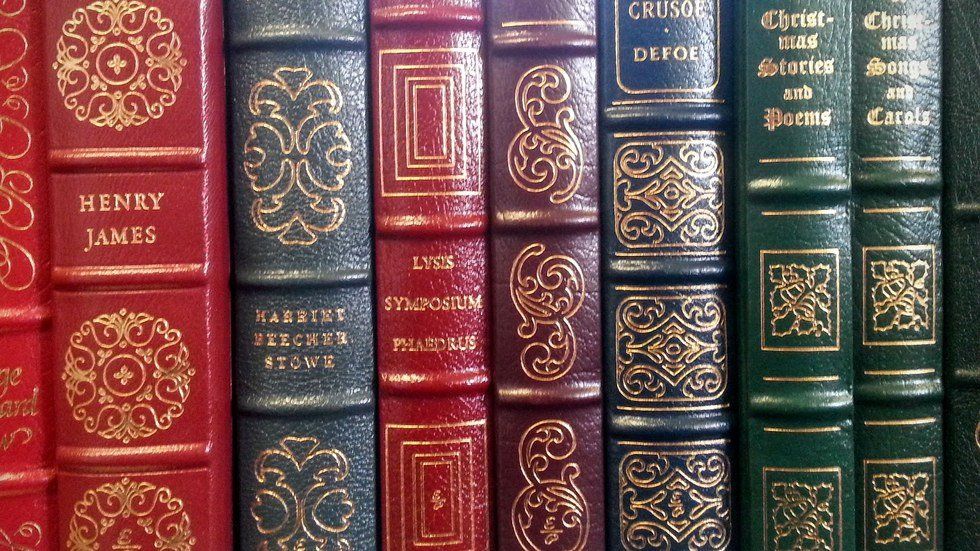I'm a literature major, meaning I've read a lot of books—from so many different time periods and cultures.
I even read 600-page Victorian novels during summer break. For fun. And as much as I love contemporary novels, it's definitely worth the time and work it takes to read older books.
Why go through all the effort? Why wrestle with styles of language and writing that are harder to connect with than a contemporary novel? Why piece together plot points that depend on characters who live in a completely foreign culture?
Aren't Victorian novels aren't boring? The Iliad obsolete? Shakespeare too hard to understand?
Nah.
Ok, let me back up on that a little bit. I don't expect everyone to be able to just pick up Tolstoy and enjoy. That's why English classes are important—they teach you how to engage with literature. So pay attention in your high school literature course, and take some in college, if you have the opportunity. If you don't, practice. The more writing of a different era you read, the easier it gets. I promise.
First of all, reading a way of writing that is different from what you're used to is a good exercise. In the Victorian era, for instance, novels were a new genre, and ever since then authors have been experimenting with ways to write a novel. So, reading Jane Eyre is definitely going to be a different experience than reading The Hunger Games.
There's the difference in language usage as well. All languages evolve, and often quickly. Ways of phrasing ideas change; words' very meanings change. It can take a while to get used to, but it's a good challenge, and it's so interesting to discover that the word "nice" didn't always mean "polite" (although maybe I'm just a nerd).
On top of that is a different historical context. Authors wrote assuming their readers understood the cultural events, persons, and practices they alluded to, most of which are a big ol' question mark to us today. But, there are really educated people out there who publish critical editions of books, so get one and look for the little numerals nestled between the words: footnotes are super helpful. Some editions come with entire essays about the text, if you're feeling ambitious.
This may sound like a lot more work than reading modern literature, and that's true. But it's worth it.
When you read another culture's literature, you understand it in a much more intimate way than if you were simply reading about it in a history book. You get a firsthand look into the thoughts of someone who actually lived in that culture. Authors write about the issues they and their culture are working through, consciously or subconsciously. So studying a culture's literature reveals what its people believed, feared, and spent their time thinking about. Instead of a textbook's generalizations, literature shows how individuals wrestled issues of race, gender, mental health, sexuality, politics, and so on in comparison to other individuals living at the same time, who may have had the exact opposite views. It's complicated, and there's no better way to get a good feel for the contradictions of a time period.
I think it's fascinating to find themes that are present in the literature of all cultures and see how universal human experiences echo throughout history. To look at how things such as our attitude toward gender or mental health drastically evolve as the centuries pass—where we've been, and how much still needs to change.
Everyone's heard the phrase about being doomed to repeat history if we don't learn it. I think the same can apply to learning from classic literature. As we read about cultures from the past, we can learn from them as well, become wiser, and, I hope, make our own culture better.
You can find a story you like from any period of time. Try it out. Challenge yourself. Learn something.





















